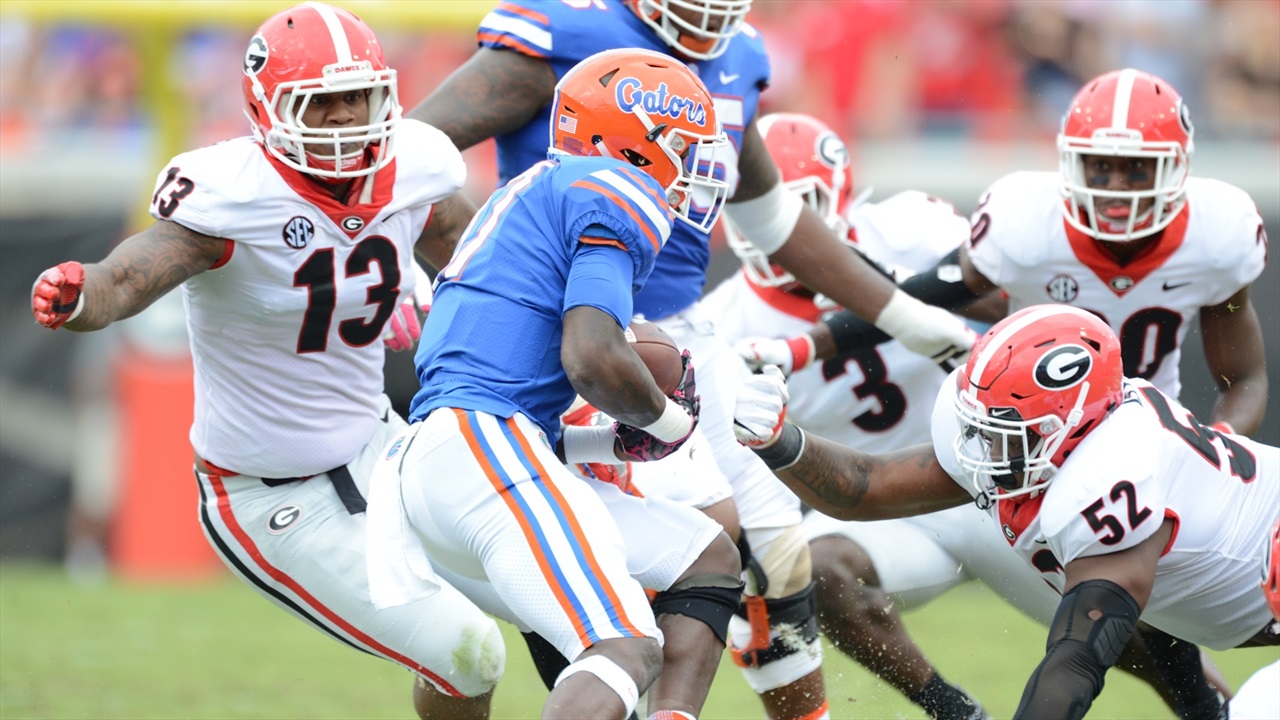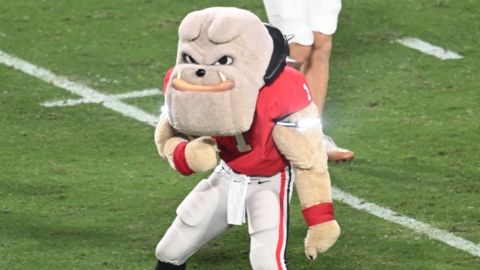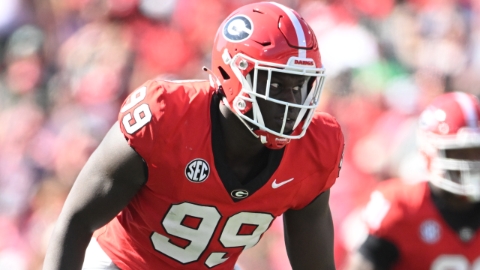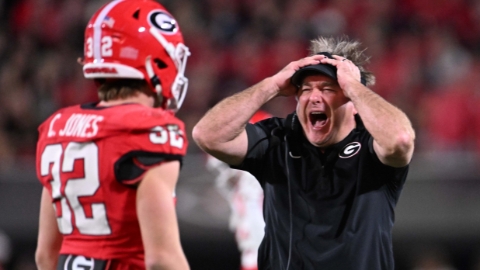SEC Holds Critical Monday Meeting - What We Are Hearing Part 1

ATHENS - All is not lost for the fall version of college football just yet, but increasingly insiders are questioning what will come next as they try to gain balance in an increasingly unsteady landscape.
What’s next for the SEC will be determined before the end of July. Full-squad get togethers are slated to start in the league this week - increasing the stakes as the start of the season is scheduled to begin in fewer than ten weeks.
“I’d say 90% chance we are delayed,” one SEC coach said over the weekend. “I would say playing the season in the spring is something like 25% chance right now. If we play in the fall, which I believe we can if some real change happens, we could start later and play a shorter season.”
“If we are going to play this is going to be conference only,” added one person with direct knowledge of a broadcast partner’s plans. “It looks like this is going to start in October. I don’t think anyone sees August and September as being realistic.”
“No one wants to watch a game where Alabama or whoever is missing its three best players because of COVID-19. This is going to have to be flexible,” the SEC coach added - speculating that a conference-only schedule could allow for the league to delay games by weeks if an outbreak occurs in Fayetteville, College Station, Athens or anywhere on a campus of the 14-school league.
For the time being, the SEC is still planning on playing a full 12-game schedule as it was created a year ago.
“Yes. Right now we still expect to play (an SEC foe),” said a non-SEC administrator whose team is scheduled to play at an SEC school to start the season. “But obviously that could change any second with how things are going.”
How long the league will hold that stance remains to be seen. Ditching a 12-game schedule will likely be talked about Monday when the league’s athletic directors meet with SEC commissioner Greg Sankey.
Sankey, who is starting his sixth full year at the helm of college sport’s most powerful league, told ESPN over the weekend that “we are running out of time to correct and get things right.” ESPN further reported that Sankey’s “concern for the football season is “‘high to very high.’”
UGA AD Greg McGarity mirrored those comments earlier in the week with the AJC.
Uncertainty continues to be the major obstacle and hurdle for all three legs of the stool that make up high-powered college sports leagues like the SEC. In background conversations with folks that make up each of those three constituents - the schools and their administrations, the players/coaches and media partners - Dawg Post got a better understanding of where the landscape is today, and a grasp for how uncertain plans are for all three factions. Certainty is a rare commodity in the business of college football. Very few people seem to know or talk with any confidence about what’s next.
The phrase “I don’t know” was the most common refrain we heard in our reporting from the past 48 hours. The Big Ten’s move to a ten-game schedule followed the next day by the Pac-12’s doing the same settled those two leagues for what they hope to happen in the fall. But the ACC, Big 12 and SEC continue to be in wait-and-see mode with their eyes toward settling things further at before the end of July.
“The Big Ten decided they could control their own properties,” said one person in broadcasting. “So they did that, and there is no way this caught anyone in TV by surprise.”
Both CBS and Disney (ABC & ESPN) had calls last week with members of their college football packages to go over what was possibly happening for the sport before the Big Ten made its annoucement. Still, the Big Ten’s move was the first in a set of actions that more than one insider saw as a move to put more pressure on other conferences in the sport to start making decisions. The Big Ten has huge TV contracts with both FOX and ESPN.
But the SEC and ACC reacted to the Big Ten and Pac-12 with a “not so fast” when it comes to their decision making.
Sankey made his pitch over the weekend to media partner ESPN, and the ACC released a statement on Friday saying that the league “anticipate(s) a decision by our Board of Directors in late July.” Sports Illustrated reported last week that no news was expected from the Monday meeting of SEC ADs.
That meeting comes with the backdrop not just of the 2020 season being on the brink, but also with the league continuing negotiations with potential rights holders for a new TV package that would start in 2024 and likely increase tier-one rights six fold - to over $300 million a year for the SEC and its schools. The league, which has the most-watched TV package in college sports, will have to decide how much inventory it will provide to its media partners this fall while continuing to give its 14 members the best overall chance to win the national title.
For some schools the revenue from media rights will be a lifeline to the next academic and fiscal year, which begins on July 1, 2021. But this year, figuring out how many games the SEC can or could play very possibly could determine if the league gets two teams in the College Football Playoff for the second time in its history. If this is the season where several conference champions end up with one or multiple losses, game played exclusively between conferences teams could lead to real trouble when picking the final four teams. Games like Michigan-Washington, Alabama-USC and Ohio State-Oregon are gone already. Those contests would have set the table for the season in terms of which league was the best league.
“I don’t know about the playoffs,” said one SEC assistant - suggesting this could be the year the College Football Playoff expands because the sport is such a mess here at what would normally be the start of the season. “If you go conference play only - we’ve not talked about that yet - well, our head coach might know that, but he’s not looped us in on that - that could get tricky in December. I am not a fan of more SEC games. I’d keep the (eight) games, and try to space out the games… be more fluid about when those games are played. I think that’s the world we are going to get into.”
As currently structured, the SEC has an eight-game conference schedule. That leaves four games of TV money off the table for each school. Tickets revenue will be so minimal or gone all together that the revenue from small crowds wouldn’t make a huge difference on the bottom line for this fiscal year in the SEC.
However, that concern may already be mitigated by something the SEC did in 2016.
In response to a freedom of information request sent by Dawg Post to UGA earlier this year, the school said that “insurance policies are handled by the SEC.” That indicates that the SEC would likely be responsible for dealing with the insurance ramifications for non-conference games (and perhaps even some conference games should they be canceled) that are not played this academic year due to COVID-19 disruptions.
In that case, the SEC’s insurance carrier would be responsible for more than 40-plus non-SEC games that are set to take place on the campuses of the league this fall. That assumes, however, that the insurance will cover games being cancelled for pandemics. In 2015, South Carolina was not able to collect on insurance it had on a home game that season vs. LSU because the insurance “only pays if structural damage to the stadium forces the cancellation of a game” according to a report from the Associated Press.
If insurance is a problem the league will handle for all 14 schools, what responsibility does the league have for everything moving forward?
“A lot to all of it,” commented one insider.
That means the SEC is taking input from the 14 schools, but that it will make the best decision for the collective group rather than problems that arise at any one place. Still, several questions remain.
Will rights holders to SEC games adjust their payments to the league if a 12-game schedule is not played? That seems probable. Does the SEC’s insurance cover pandemics? If it does, can the league’s insurance handle a claim that involves more than 40 games? Or does the SEC feel like moving forward with one more conference game (almost certainly a cross-division game; West vs. East) to provide a ninth game, or possibly even a tenth game?
What about out-of-conference in-state rivalries?
Veteran college football reporter Matt Hayes tweeted Friday that the SEC’s four eastern schools with in-state rivalries against ACC foes “desperately want to play those” rivalry games.
Tech and UGA have faced one another each year since the end of World War II. UGA officials, for decades, have maintained that they are not interested in any way in dropping the Yellow Jackets from any of their sports schedules - and certainly not in football. The SEC-ACC in-state rivalries might pave a path for the SEC to get to a ten-game schedule that doesn’t involve playing ten league games.
Those games coupled with in-state rivalry games would cover the additional game for each SEC East school. Only A&M and Alabama would have to figure out another game due to their games with Pac-12 schools being cancelled.
Several non-conference games with Power 5 schools are still on the books:
SEC West
Arkansas at Notre Dame
Texas at LSU
Mississippi State at NC State
Auburn vs. North Carolina
Ole Miss vs. Baylor
*** Alabama vs. ?
*** Texas A&M vs. ?
SEC East
Vanderbilt at Kansas State
Tennessee at Oklahoma
Missouri at BYU
Tech-UGA
Florida-FSU
Clemson-Carolina
Kentucky-Louisville
The Tide was set to pocket more than $6 million for their appearance in that game against the Trojans in what was to be a major “kickoff game” in week on of college football. Kickoff games are a subject that few people have discussed in the current climate, but they have an impact on finances for the season as well. Georgia’s opener against Virginia was set to pay the Dawgs $4.25 million, but that was under the assumption that UGA would sell 30,000 tickets. There is no mention of cancellation of the event in the term sheet signed by Greg McGarity and the Peach Bowl’s Gary Stoken.
MONDAY: SOME SEC SCHOOLS NEED TO PLAY IN 2020 MORE THAN OTHERS - WHICH ONES?



